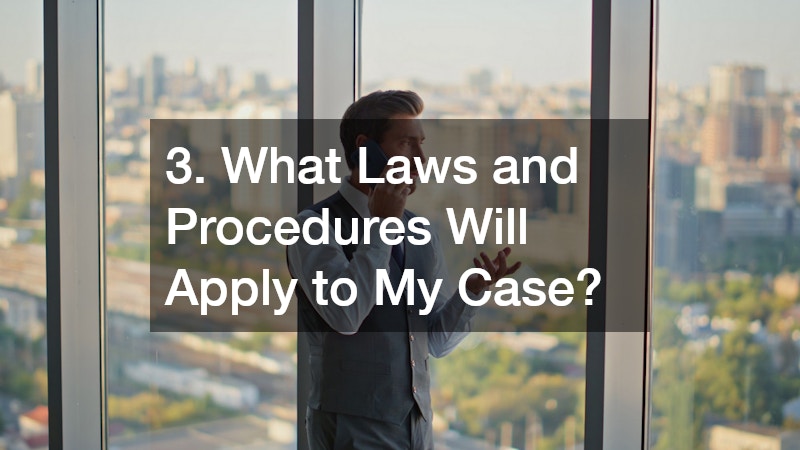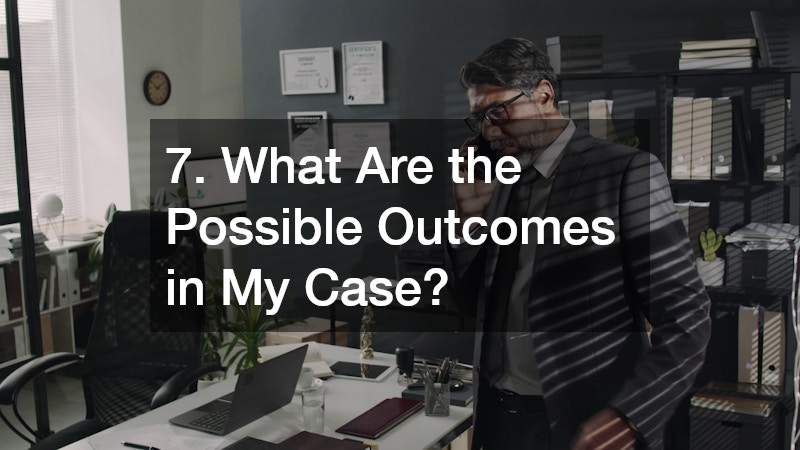When you’re facing a legal issue—whether it’s a criminal charge, an injury claim, a divorce, a bankruptcy filing, or a dispute in family court—choosing the right lawyer is one of the most important steps you can take. The attorney you hire will become your voice in the legal system, guiding you through complex laws, defending your rights, and advocating for your best possible outcome.
Many law firms today offer a free phone consultation as the first step in getting to know each other. While some people treat this call as a quick chat to explain their case, the most successful clients treat it like a job interview where they are the employer and the attorney is the applicant. You are not just sharing your side of the story—you are evaluating the lawyer’s qualifications, approach, and compatibility with your needs.
The key is to go into your free phone consultation with a clear plan and a set of detailed questions. The answers you get will help you determine whether the attorney is the right fit, whether they have the necessary experience, and whether they can handle the unique demands of your case.
Below is an expanded, detailed list of specific questions you should ask during your free phone consultation, with explanations of why they matter, examples of what to listen for, and insights into how they apply in different types of cases—from felony lawyer defense work to advice from best divorce attorneys, guidance from family court attorneys, expertise from a local personal injury attorney, or knowledge from a seasoned criminal law attorney.
1. What Specific Experience Do You Have With Cases Like Mine?
Experience isn’t just about years in practice—it’s about the right kind of experience. A lawyer might have decades in the profession but very little exposure to your type of case. That’s why you should start your free phone consultation by asking the attorney to detail their background with cases similar to yours.
If you’re facing criminal charges, a felony lawyer should explain not only how many felony cases they’ve handled but also the specific types—such as drug offenses, violent crimes, or white-collar charges—and the outcomes they’ve achieved. Were they able to get charges reduced? Did they win acquittals at trial? Have they successfully negotiated favorable plea deals?
If you’ve been injured, a local personal injury attorney or personal injury law firm should discuss their experience with similar injury types—such as car accidents, slip-and-falls, or medical malpractice—and their track record in securing settlements or jury verdicts. In a divorce or custody matter, the best divorce attorneys and family court attorneys should share examples of cases where they’ve successfully protected parental rights or secured equitable asset distribution.
The more specific the attorney’s examples, the better. Listen for details about strategies, challenges, and results. Vague answers like “I’ve handled cases like this before” without elaboration should raise questions about their true experience.
2. How Would You Initially Approach My Case?
Once you’ve confirmed that the attorney has relevant experience, the next step is to find out how they would begin working on your matter. While no lawyer can provide a complete strategy during a free phone consultation, they should be able to outline their initial steps based on the information you provide.
For example:
- A criminal defense attorney might say they would start by requesting discovery from the prosecution, reviewing all evidence, and identifying constitutional issues that could lead to evidence suppression.
- A local personal injury attorney might explain that they would begin by gathering medical records, photographing injuries, interviewing witnesses, and notifying the insurance company to preserve your claim.
- Family court attorneys might start with filing for temporary orders in custody or support matters to protect your rights while the case proceeds.
You want to hear that the attorney has a structured, proactive process rather than a “wait and see” approach. This will help you gauge whether they’re organized and capable of moving quickly to protect your interests.
3. What Laws and Procedures Will Apply to My Case?
Every case is governed by a set of laws and procedural rules, and during your free phone consultation, you should get a sense of the attorney’s command of those rules. This question serves two purposes: it tests their legal knowledge and it shows you whether they can explain complex information in a way you understand.
For example:
- Under bankruptcy law, there are specific eligibility tests, filing requirements, and timelines that can drastically affect the outcome. An experienced bankruptcy attorney should clearly outline the differences between Chapter 7 and Chapter 13 and which might be better for you.
- A criminal law attorney should be able to walk you through the possible charges, sentencing guidelines, and procedural stages—from arraignment to trial.
- A personal injury law firm should explain your state’s statute of limitations, comparative negligence rules, and how damages are calculated.
If the lawyer explains these concepts clearly and confidently, it’s a sign that they not only know the law but can also ensure you understand it—critical for making informed decisions.
4. How Will We Communicate During the Case?
Good communication can be the difference between feeling confident about your case and feeling left in the dark. The free phone consultation is the right time to clarify how you will communicate with the attorney’s office.
Ask:
- How quickly do you respond to calls or emails?
- Will I be able to speak directly to you, or will my questions go through a paralegal?
- Will you provide regular updates even when there’s no major news?
For urgent situations—such as those handled by felony lawyers or injury lawyers—you need an attorney who responds promptly. In family law cases, timely communication from family court attorneys is essential for fast-moving custody or support hearings. If you sense hesitation or get a noncommittal answer, that could be a sign of potential frustration later.
5. How Do You Structure Your Fees?
Legal fees can vary significantly depending on the type of case and the lawyer’s billing method, so it’s essential to discuss costs during your free phone consultation.
If you’re hiring a personal injury law firm, they will often work on a contingency fee, meaning you pay nothing upfront and the firm takes a percentage of your settlement or award. Ask what that percentage is, whether it changes if the case goes to trial, and if you’ll owe any costs if you lose.
For a felony lawyer or other criminal defense attorneys, fees may be hourly or flat rate. You should ask about payment schedules, whether retainer fees are refundable, and whether there are additional costs for expert witnesses or investigators.
Clarity here protects you from unexpected bills and helps you compare different attorneys fairly.
6. How Long Will My Case Likely Take?
Timeframes are another critical factor to understand. While no attorney can guarantee how long your case will last, they should provide a reasonable estimate based on their past experience with similar cases.
For example:
- Family court attorneys might tell you that a straightforward custody modification can be resolved in a few months, while a fully contested custody battle could take over a year.
- A local personal injury attorney might say that most auto accident cases settle in 6–12 months, but severe injury cases often take longer due to extended medical treatment.
- In bankruptcy law, Chapter 7 cases are typically resolved in about four months, while Chapter 13 repayment plans last three to five years.
Knowing the likely duration can help you plan your finances, schedule, and expectations accordingly.
7. What Are the Possible Outcomes in My Case?
This is where you ask the attorney to outline best-case, worst-case, and most likely scenarios. A confident lawyer will be honest about the risks and won’t overpromise.
A felony lawyer should detail the range of possible sentences, including probation, fines, or prison time, as well as any chance of having charges reduced or dismissed. A local personal injury attorney might provide an estimated settlement range based on your injuries, liability, and evidence strength.
The attorney’s willingness to be candid—even about unfavorable possibilities—shows integrity and realistic case assessment.
8. Do You Have Access to the Resources My Case Requires?
Some cases require more than legal skill—they demand resources. During your free phone consultation, ask whether the attorney has access to expert witnesses, investigators, or specialists relevant to your matter.
A personal injury law firm might bring in accident reconstruction experts, economists to calculate lost earnings, and medical specialists to testify about your injuries. Criminal defense attorneys may need forensic analysts, private investigators, or digital evidence experts. Best divorce attorneys might work with forensic accountants to uncover hidden assets.
Resources like these can significantly strengthen your case and improve your chances of a favorable outcome.
9. How Often Do You Take Cases to Trial Versus Settle?
This question tells you whether the attorney is a skilled negotiator, a seasoned trial advocate, or both. If you’re speaking to injury lawyers, you want someone who can negotiate aggressively with insurers but won’t hesitate to go to court if necessary. In criminal matters, a criminal law attorney who has substantial trial experience may have more leverage in plea negotiations because prosecutors know they can back up their threats to go to trial.
An attorney who is comfortable both in settlement discussions and in court can adapt their strategy to changing circumstances.
10. What Should I Do Immediately to Protect My Case?
You should never leave a free phone consultation without knowing what actions you should (and shouldn’t) take right away.
For example:
- Local personal injury attorneys might advise avoiding conversations with insurance adjusters and keeping detailed medical records.
- Felony lawyers might instruct you not to discuss your case with anyone except your attorney.
- Family court attorneys might recommend documenting all interactions with the other parent and avoiding any behavior that could be misinterpreted in court.
These immediate steps can make a big difference in preserving your legal rights.
11. Who Will Handle My Case Day-to-Day?
In larger firms, the lawyer you speak to during your free phone consultation might not be the one managing your case. Ask whether they’ll personally oversee it or delegate to associates or paralegals. If multiple people will work on your case, request an introduction to the team so you know who’s responsible for each aspect.
12. Have You Worked in This Court or With This Judge Before?
Local knowledge can be a major advantage. A criminal defense attorney familiar with the prosecutors and judges in your jurisdiction may know how they typically handle certain cases. A family court attorney might understand a judge’s preferences on custody arrangements.
13. How Do You Prepare Clients for Testimony or Depositions?
Preparation can significantly impact your credibility and effectiveness in court. Ask the attorney to describe how they’ll get you ready for testimony, depositions, or hearings. Their answer will show how much they invest in client readiness.
14. Can You Provide Client References or Testimonials?
Hearing from past clients can give you insight into the lawyer’s style, responsiveness, and results. Whether you’re speaking to a personal injury law firm, best divorce attorneys, or a felony lawyer, testimonials can reveal strengths and potential weaknesses.
A free phone consultation is your opportunity to gather as much information as possible before deciding who will represent you. By asking these detailed questions—and listening closely to the answers—you’ll be able to determine whether a criminal law attorney, local personal injury attorney, family court attorneys, injury lawyers, felony lawyer, personal injury law firm, best divorce attorneys, or bankruptcy law specialist is the right fit for your needs.
The right lawyer will have the experience, resources, communication skills, and dedication to guide you through your legal challenge and work tirelessly toward the best possible outcome. We hope that this guide was able to help you better understand some of the questions you should be asking your lawyer during your consultation. By asking these questions and working with your lawyer closely, you can move forward with confidence that your case will be handled professionally.







